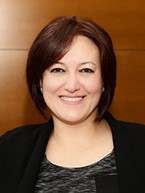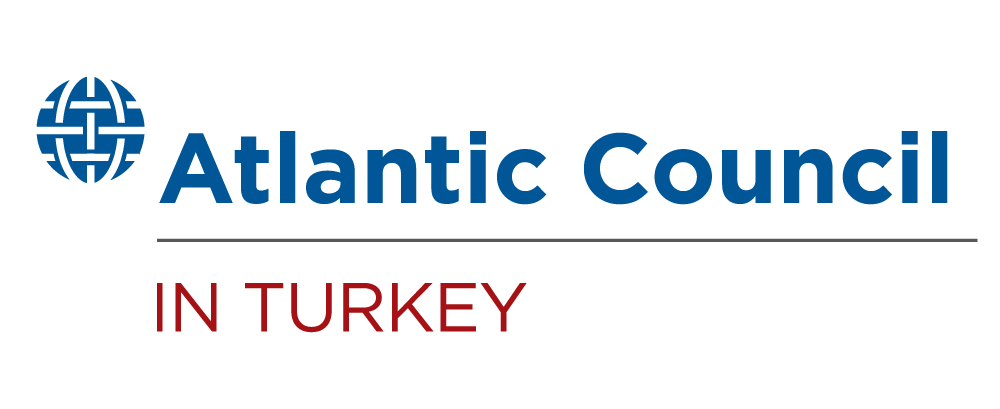Event recap
On February 28, 2023, the Atlantic Council IN TURKEY organized a webinar on the international response to the earthquake in Turkey and Syria and the potential implications of the disaster and humanitarian response to Turkey’s foreign policy. The virtual event brought together experts, diplomats, and business leaders from the United States, Turkey, and Israel to discuss the magnitude of the disaster, the importance of international assistance, and how the earthquakes may affect Turkey’s foreign policy moving forward.
The event featured a distinguished panel composed of Chairman and CEO of ARAD Holdings, Nimrod Arad; Atlantic Council South Asia Center Nonresident Senior Fellow & former World Bank Country Director for Turkey, Ajay Chhibber; State Department Deputy Assistant Secretary, Bureau of European and Eurasian Affairs, Erika Olson; and former Permanent Representative of the Republic of Turkey to the OECD, Amb. (Ret.) Mithat Rende. The panel was moderated and hosted by Atlantic Council IN TURKEY Senior Director Defne Arslan, who also delivered the opening remarks.
The panel took place 22 days after the 7.8 and 7.7 magnitude earthquakes hit Southeast Turkey. By the time of the event, more than 45,000 lives had been lost, and around 20 million people were affected in the region. The event followed a visit to the region by the U.S. Secretary of State Antony Blinken, which was his first visit to Turkey since assuming his position. Visits by the foreign ministers of Greece and Armenia , and, one day before the event, a visit by the Egyptian foreign minister demonstrated that the earthquake opened avenues for dialogue with regional neighbors despite troubled relations. With reconstruction efforts beginning rapidly, the panel highlighted what needs to be done and what role the international community can play.
In her opening remarks, Defne Arslan detailed the earthquake’s impact on the region and the country. Arslan highlighted the international assistance and the solidarity shown during the search and rescue operations, mentioning that more than 11,000 search and rescue personnel came to the affected region, with Turkey receiving aid from 102 countries. Arslan also highlighted the importance of visits by the leading diplomats of the United States, Greece, Armenia, Egypt and more.
Ambassador Mithat Rende, who is originally from Hatay, one of the hardest hit cities by the earthquake, gave an overview of how extensive the destruction is in the region and touched on the serious lack of coordination in search and rescue during the initial response, noting that lessons were learned too late. In the days ahead, he emphasized the need for the international community’s support, and expressed hopes that the support will continue to flow. Ambassador Rende argued that the earthquake can positively affect the geopolitical environment in the region, and the visits of numerous foreign ministers. As a final note, Ambassador Rende underlined the pressing need not only for tents and camps but for support on post-disaster rehabilitation including to build schools and help the children who are the most affected.
Nimrod Arad discussed earthquake assistance from Israel and the potential impact on Turkey-Israel relations. He noted that the earthquake was felt in Tel Aviv, and there was an immediate response from the municipalities that they needed to do something. As one of the businesspeople who personally assumed a role in humanitarian assistance operations, Arad gave an overview of the operations he carried out and underlined some of the problems he faced during this period. He worked to create a logistic chain to help guarantee the aid’s arrival and coordinated with the Turkish embassy to ship the supplies to the region. One of the challenges was in distributing aid in a way that preserves dignity and respect of the people. Arad emphasized the need to think about using this opportunity to become stronger. For the reconstruction of the region and revitalization of the economy, we need to be able to collaborate and find the right way to do assessments. Arad also suggested opening regional crisis centers as needed to help children. He noted that Israel is 100% willing and wants to collaborate, as there are many things to do.
Deputy Assistant Secretary Erika Olson explained how the U.S. responded to the earthquake from the very first moment of the news. She noted the U.S. immediately offered and dispatched to Adıyaman search and rescue teams of more than 200 people and K9s, and how they coordinated with the Armenian search and rescue team there. She underlined the additional 100 million dollars announced by Secretary of State Antony Blinken during his visit to Turkey, bringing the total U.S. assistance to Turkey and Syria to $185 million, and noted that this is only the beginning. Olson also announced that a U.S. surgical and trauma hospital has been established in Hatay and will be turned over to the Turkish Ministry of Health to run in the long term. Olson delivered the message that regardless of politics, friends are there for each other in their darkest hours. Regarding the impact of the earthquake on Turkey-U.S. relations and Turkey’s foreign policy, Erika Olson stated that the discussions between Blinken, Çavuşoğlu, and Erdoğan were all constructive, and that it is essential to sit and have conversations from different perspectives. Regarding the recent news that dialogue on Sweden and Finland’s NATO membership will resume again, DAS Olson expressed that the U.S. was happy to see the announcement and remains committed to Sweden and Finland’s membership.
Ajay Chhibber, with his experience as the World Bank Country Director for Turkey during the 1999 Izmit earthquake, gave a comparison and outlook on the internal and international disaster responses. Chhibber highlighted the need for cash for people impacted by the earthquake in addition to toilets and medical supplies. He also focused on the critical importance of a proper damage assessment for reconstruction, especially the type of soil and construction methods during the process, while mentioning the damage assessment report by the World Bank, which estimated just the capital stock loss at $34 billion. Chhibber said that the key to the region’s economic revival is to build back better. He underlined that all public buildings must be earthquake-proof and must be ensured to follow the earthquake policies and regulations as people can use them as shelter points.
In general, the panel emphasized the importance of the international response to the disaster as the magnitude of the damage is critically high. The dialogue initiated by the earthquake will positively impact Turkey’s foreign policy as will the goodwill created through relief efforts are highly appreciated by the Turkish people. As reconstruction ramps up, it is essential to properly assess the damage and plan for the revitalization of the of economy and bring people back to their home cities.
Speakers
Nimrod Arad, Chairman and CEO, ARAD Holdings
Ajay Chhibber, Nonresident Senior Fellow, South Asia Center, Atlantic Council & former World Bank Country Director for Turkey
Erika Olson, Deputy Assistant Secretary, Bureau of European and Eurasian Affairs, U.S. Department of State
Amb. (Ret.) Mithat Rende, Former Permanent Representative of the Republic of Turkey to the OECD
Moderated by
Defne Arslan, Senior Director, Atlantic Council IN TURKEY, Atlantic Council
Related experts
The Atlantic Council in Turkey aims to promote dialogue and strengthen transatlantic engagement with the region through research, programming and high-level discussion forums to address critical issues around energy, economics, migration, and security.



On Twitter? Follow the conversation @AC_Istanbul and @AtlanticCouncil